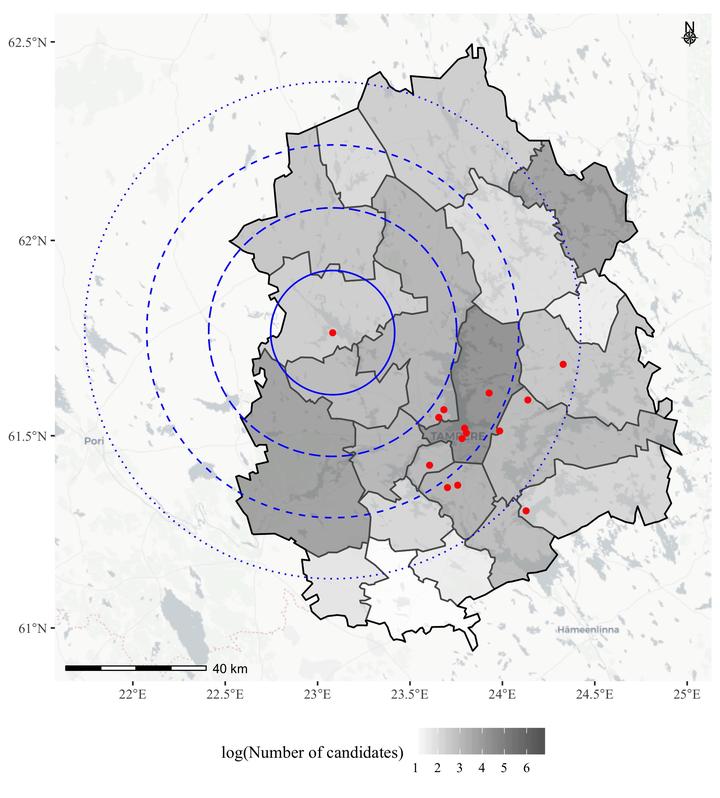Fighting over friends and neighbors: The effect of inter-candidate geographic distance on intra-party competition

Abstract
Previous studies on intra-party competition have largely neglected the role played by geographic distance between co-partisan candidates. In this study, we argue that candidates who live further away from intra-party competitors on the same party list benefit electorally from their remoteness. Moreover, we contend that the electoral effectiveness of exhibiting local personal vote attributes – a theoretically and empirically well-established candidate strategy to cultivate personal votes – also depends on the geographical proximity of localized co-partisan candidates. Using a unique and untapped dataset of more than 5,000 Finnish election candidates’ home address coordinates over four consecutive parliamentary elections (1999–2011), we run beta regression models to examine the effects of candidate remoteness and nearest candidates’ local characteristics on intra-party vote shares. To measure the remoteness of a particular candidate, we develop a novel index based on the distribution of co-partisans over concentric circles around that candidate. The empirical analyses show that the effect of geographic remoteness depends on local party strength and the degree of urbanization: candidates particularly benefit from more distant co-partisans in party strongholds and rural and suburban municipalities. Moreover, all models confirm that nearby located localized co-partisans decrease a candidate’s own vote share. These findings have important implications for politicians’ careers, party nomination strategies and future empirical research on intra-party competition.